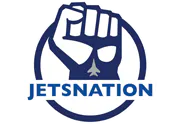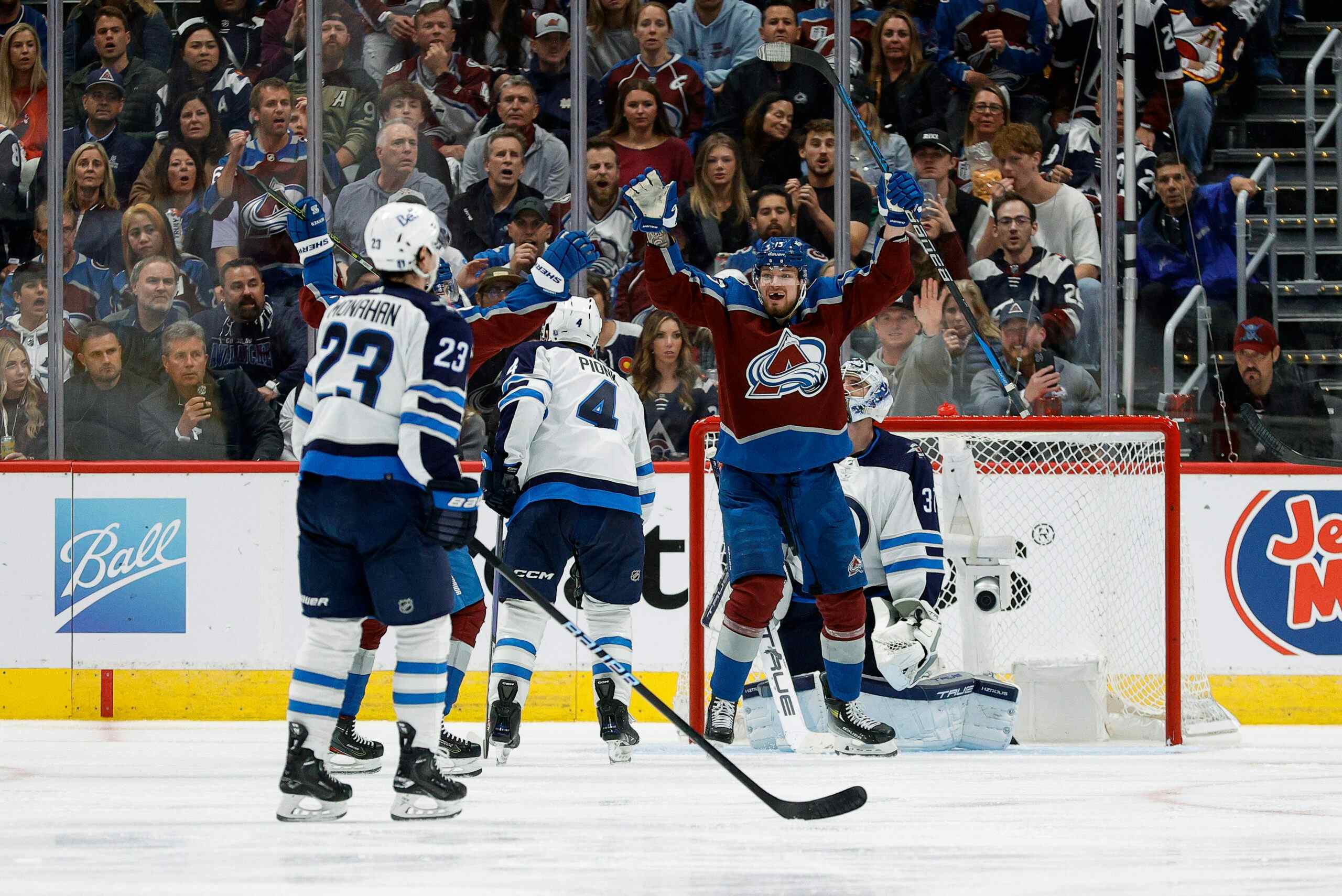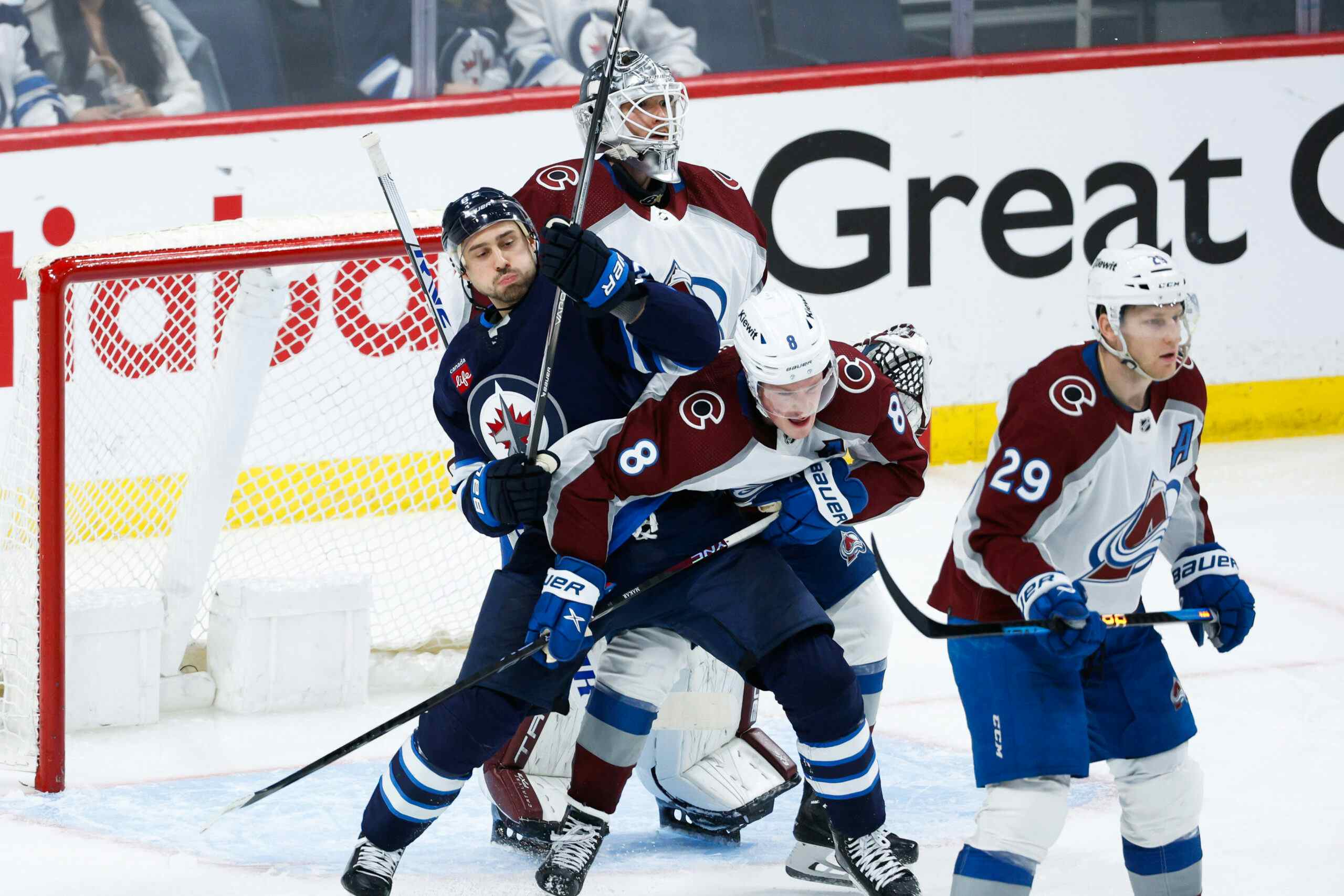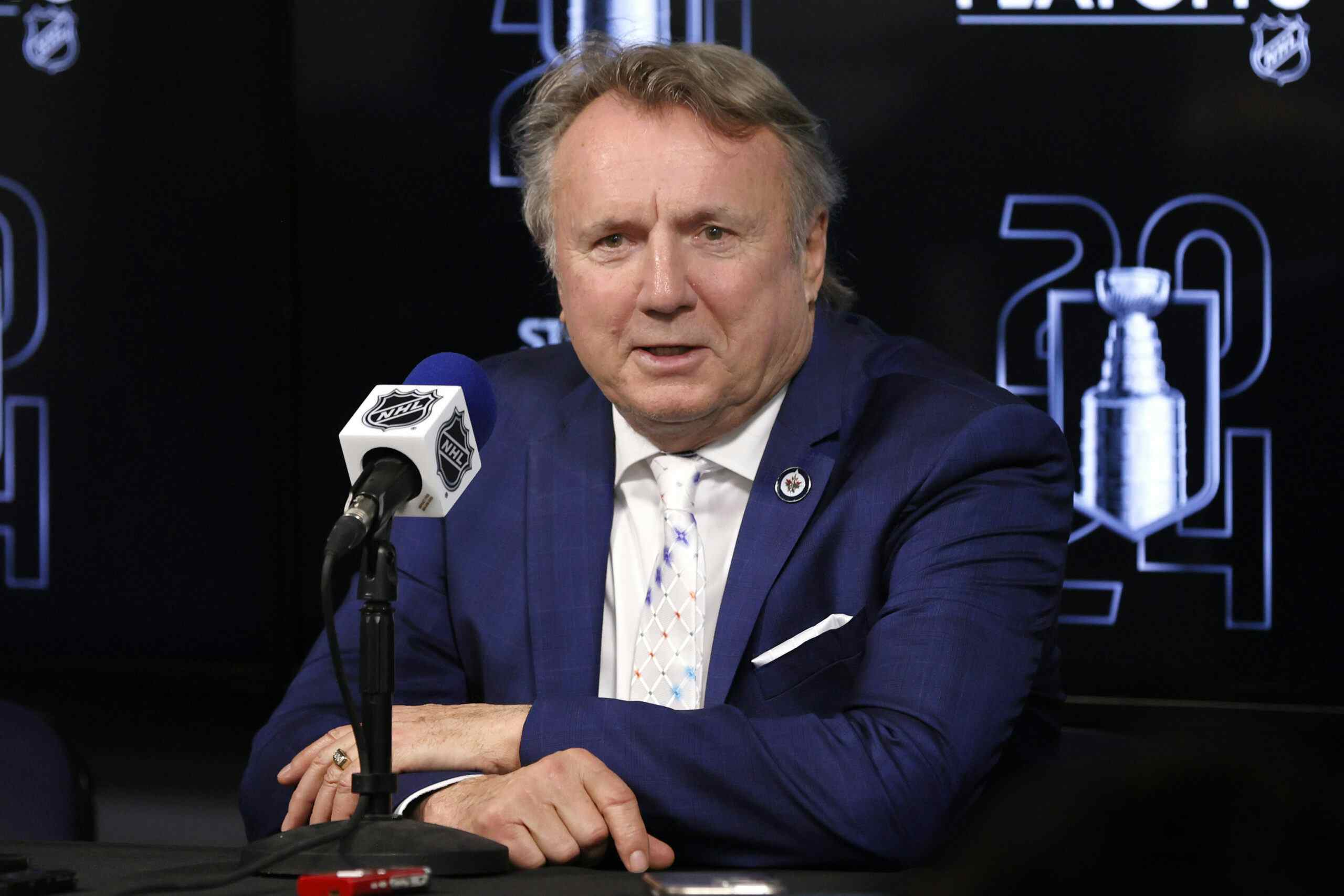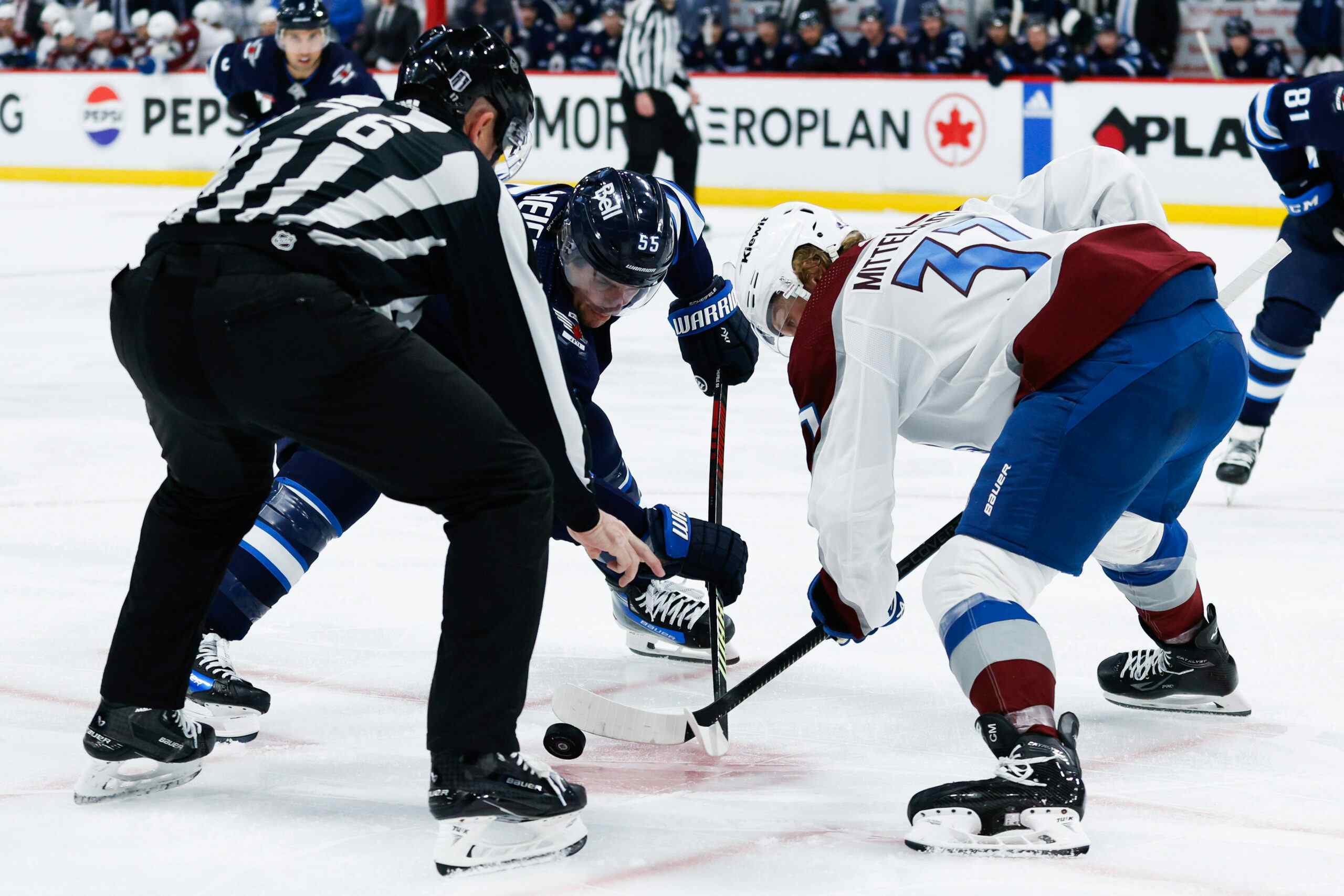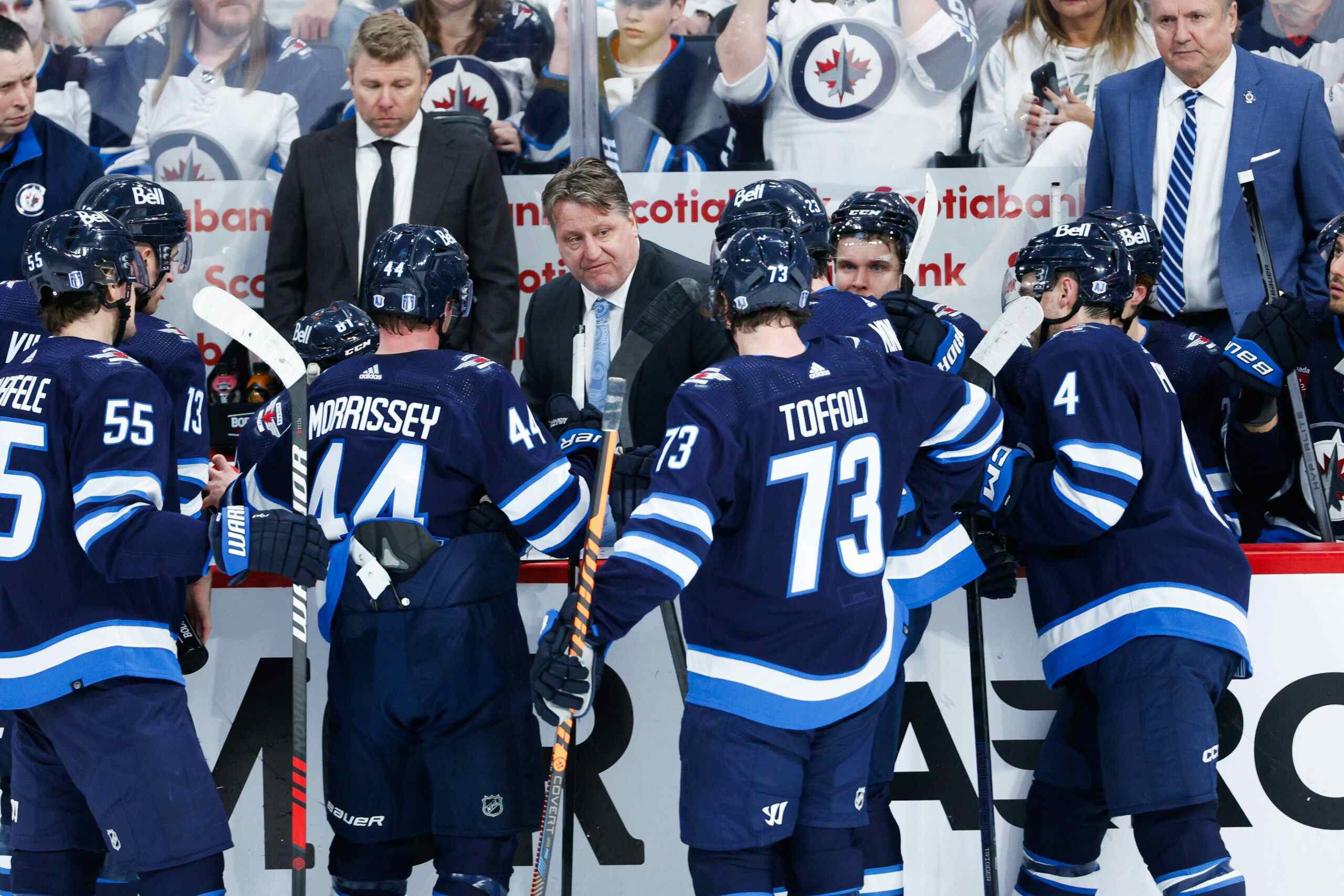CHLPA WANTS BETTER EDUCATION
By Jason Gregor
11 years ago
With the NHL and NHLPA at odds again for the 2nd time in eight years many hockey people and fans have expressed their concern over the new CHLPA. Who is the CHLPA? What are their plans? The CHLPA has taken a beating for the past month. Some of the backlash was deserved due to their inexperience at PR, but most of it was unwarranted and came from the mouths of people who fear change.
I read a few stories claiming the CHLPA was looking for massive increases in CHL player’s weekly salaries. Understandably that didn’t sit well with most fans and people connected to CHL teams. Last weekend I ran into the Executive Director of the CHLPA, Georges Laraque at the Road Hockey to Conquer Cancer event. I asked him about the CHLPA and he said that today (last Saturday) was about charity, but he agreed to come on my show on Tuesday to discuss the CHLPA.
JG: When and why did you get involved?
JG: When and why did you get involved?
GL: This started 14 months ago in February of 2011. This started when some current players playing in the CHL contacted some lawyers and said they wanted to create the CHLPA.
Before I was contacted, they had contacted other people and nobody wanted to do it. Whether it was because it was a hard cause, maybe they didn’t want to face criticism, whatever it was people didn’t want to help them out. Some people that were asked, asked for money, they asked to be paid, but there’s no money right now. Because everyone right now helping those kids [is] doing it for free because there is no money and we’re doing it for the cause. We believe in the cause and we’re we want to help those kids.
And now 14 months later they came to me at the end of August and asked me if I could work with them and be their executive director. I had to think about it because as you know I was working for a TV station in Montreal that owned a junior team. And I knew that by making that decision I would probably lose my job, which was a really good job. But at the end of the day, what is more important? Sometimes in life you have to make decisions and you’ve got to put the money aside [in place of] what’s in your heart, what’s more important? And I thought that fighting for those kid’s rights to have their own union, especially when they talk about education, it was the right thing to do.
I was let go from the job that I was doing on TV. And now, with a lot of great people around me we are working to make this union possible for all of the kids playing in the CHL.
JG: Some people think the CHLPA is about getting more money for players. Right now they average around $50/week depending on the contract. What’s the main premise, what are you looking for?
GL: I’ve heard a lot of the things that people are saying, and most of it is inaccurate. We’re all working for the players, and everything that we say and that I say comes from the players that are on the board.
They’re talking about education. No kid came to me, or came to anyone and said that they want to be paid $1000/week. The $50/week is already a joke compared to the money that the CHL is making but they talk about education. That’s all they want, they want a better education plan because in all three leagues there is an expiry date in terms of education of a year to 18 months.
So think about it, a guy that plays junior hockey his entire career and devotes all of his time to it only makes $50/week. After the junior career is over, they want to push you to the NHL so they might play in the East Coast or the American Hockey League for a year or two and when they come back and realize that it’s not working out and they want to go to school or university, but you can’t because the expiry date is done. The league takes that money and puts it back in their pocket and says “bye bye, thank you for your service” to the players that helped the CHL generate millions of dollars every year.
Those players have a right to an education. They want to create a union to make sure that this (education) will be a main focus. We are talking about 1300 kids in which about 98% of them won’t play in the NHL; I think it’s reasonable for them to at least fight for their education.
Just for an example to throw, look for the Quebec Major League website they talk about how the 18 teams in the Quebec League have spent $400,000 (on education) which is less than the $25,000/team. If you look in the Western League all of the numbers are shown there, the Western Hockey League has spent over $600,000 between 22 teams which is less than $30,000/team.
In the Quebec League there are over 45 million tickets sold and in the Western League there are over 50 million tickets sold. Then if you look at the stick budget, which is more than $50,000/yr how does that make sense? We spend more money on sticks than education.
Most people complaining are probably protected by a union whether you’re a police officer, a teacher, lawyers, ex-NHL professionals they’re protected from the NHLPA. It makes me sick to see ex-players who are owners or coaches in the CHL and made a million in the NHL because of the NHLPA, but now they are bashing the CHLPA when kids talk about education. The CHLPA is not going to negotiate any contract for the kids. We’re not talking about negotiating money or anything. All we are talking about is education.
JG: There are a few kids who say they don’t know much about the CHLPA. Has the CHLPA spoken to representatives from every team about your cause?
GL: I’m really glad that you asked me that question. I’m glad that everyone who is listening to the top rated sports show in Edmonton and Alberta can hear the answer. I was hired at the end of August, and since then for probably every half hour I’ve talked to a player. I’ve talked to hundreds of hockey players. What they say to the media is exactly what we’re telling them to say because all of those kids are suffering intimidation from coaches and from owners of some teams.
We have letters, we have documentation, and we have clips with video where they threaten players if they join the union they’re going to cut their stick allocation or other things. When we try to do a worldwide campaign about intimidation in schools, they should know that owners and coaches are doing it right now to their own product, to junior players in all three leagues.
What do you think that a player is going to say when he is asked about the CHLPA? They can’t say anything because they are going to get crucified. Look how I get criticized Jason and I’m working for free right now for those guys to fight for their rights. Imagine if it was them who said ‘I’m actually on a committee board, I started this.’ What would happen to that kid, could you imagine? He’d get cut, he’d get sent home. We are here so they don’t have to expose themselves.
But that’s not important, what is important is the message, what they want. So instead of people criticizing and trying to find loopholes, why don’t they just realize that we’re doing this for the kids, the kids are doing it for them.
Do you know how many parents are sending emails and letters because they are happy that someone is looking out for the interests of their kids? When the kids are leaving home to go play junior hockey, they (parents) feel much better that there is a chance that they (kids) are going to have a better education if they’re career in hockey doesn’t work out.
It’s never easy to start a union, but it has to start somehow and somewhere. Every kid that I’ve talked to is in favour of it but if you ask them, they can’t say that they are because they’re going to get caught. At the end of the day, this is going to work, this is for them. We’re fighting for them and we’re going to do everything that we can to get their rights protected so that they can get a better education.

JG: I’ve read that one of the CHLPA goals is to find a way for players who played in the CHL could somehow go to the NCAA. That’s never happened, how is that going to be possible?
GL: First of all, the $50/week and I don’t know why the CHL calls it salary because I would call it contamination money, because that contamination money is the reason why they can’t go to the NCAA.
By having he teams give the money to the CHLPA, and then we give it to the players as stipends that might be way that it looks like an expense rather than salary. Because $50/week it wouldn’t even be considered an expense Jason. $50/week an expense, that’s like $7/day. Are you kidding me?
You could rent a movie, have popcorn and that’s it. This is ridiculous! So really we have ways to make it so that it won’t come out as a salary, and then the players won’t lose their eligibility. So everyone could try out for junior hockey, they don’t have to make the decision after midget AAA whether they are going to US college or play in the CHL. Now they can all try in the CHL and it doesn’t work, they go to a US college.
This is the type of stuff that your union does for players. You work and find ways to improve the situation of every player so that they can have a better future. Right now the CHL is making a lot of money and the interest is not for the players because look at the education plan, it’s a joke. Hockey Canada has given $6 million to the CHL which is $2 million per league and they’ve only spent $400,000-$600,000. There’s so much money left that goes directly into the team’s pocket.
So really, if they’re not looking in the interest of the kids for their education do you think that they are going to look for other interests like keeping their eligibility? We want to find partnerships that are going to help all of the guys.
I’m surprised by the negative reaction we’ve received just because they want to create a union to make sure that this doesn’t keep happening.
JG: Have you actually spoken to anyone at the NCAA about them allowing CHL players to play in the NCAA?
GL: We’re in talks with them. We have already started talking about the process and they said they would be open to talk with us to see if we could find ways to make it work. Obviously it is up to them and would need to be to their liking. We already started talking about what we do and that (NCAA allowing CHL players) would only work with a union because of the NCAA structure. The players would get a stipend, similar to a per diem from the union. We would work in a partnership with the NCAA to make it work so then it won’t be a problem in the future.
And I don’t know why this (creating a union) hasn’t been done before. This should have been done a long time ago because education should be much more important than hockey, because that is the only thing guaranteed for all of those kids, not hockey, because as much as I would love for all of those players to make it in the NHL, there’s only a minimal percentage that will.
So that’s why having this union is right, and some people have to fight for them. Despite some people, and some people in the media, who have a conflict of interest because they cover the CHL and have a special relationship with owners and coaches that are going to say ‘oh I have your back’ and they’re going to bash the CHLPA. I understand that, but at the end of the day, everyone [that] is working in the organization is doing it for the kids, for their education and for the parents that let their kids go live with the billets. We are doing it for the kids that have no options after their junior career is done. That’s who we’re doing it for.
And it’s fine for people to criticize whatever they want, but our hearts [and] my mind is at peace for doing what’s right for those kids. They could look at all technicalities Jason, but at the end of the day we’re working for them, working for free, fighting for their rights because right now they are getting abused. They’re being paid under minimum wage for years now which is against the law and we’re not even talking about getting them more money, we’re talking about education and now we’re getting bashed because the kids are saying ‘our education plan is no good, we want a better plan.’
I don’t understand some people. It’s actually pretty easy to understand. That’s why there are so many people, so many lawyers all across the country that are joining us and helping the cause. Just like all of us and all of the kids on the board, they believe that right now the way that junior players are treated is not fair. They want to fight for their rights because they can and they have the time and all together we are going to make this happen.
JG: Have you contacted any agents? Obviously agents and the PA work closely in the NHL. Have any expressed an interest in helping out?
GL: Yes I have talked to hockey agents and every one that I’ve talked to were behind the CHLPA and were endorsing it, because at the end of the day it makes life easier for the agents. Because any agent [who] tries to sign a player that is under 18, they try to work with the parents. What is the first thing most parents do; they ask the agent for a special education plan for their son. It isn’t just offered up alt the time and so the agent has to fight for that.
Also, if an agent has 15/20 kids playing in junior hockey he has to take care of the problems of 15/20 kids and the agent has to focus on bringing that player to the next level, focus on their hockey career and not their everyday problems.
They know that when there is a union, every time that there is a problem we’re going to deal with it. There’s a 1-800 number and whether the problem is social, hazing, intimidation, alcohol, any type of abuse, we’re going to be a special line assistant, just like what the NHLPA has. And that’s going to help them and make their job much easier. Because today if a player complains to an agent and the agent calls the team, the teams know where that complaint is coming from, and maybe [the player] doesn’t play in the next game or maybe he misses a couple of shifts. When the complaint comes through the union, it’s always confidential so we could deal with these problems much easier and kids wouldn’t be worried about being punished for speaking out.
So that’s why for the agents it’s a no brainer because we’re not negotiating deals, the agents will do that. Keep in mind teams do have special deals with certain players. There are players in the CHL that makes $100-200 grand, Jason. There are some players like that, but we’re not getting involved with that, they can still negotiate special benefits through their agent if they want to. We are focusing on the kids that make $50/week, what options does he have?
Is it fair that the some European player who plays in the league makes $100 or $200 grand while players that are born and live right here in Canada, and play Canada’s favourite sport, make $50/week. Then when their career is over they have no education, they have nothing? We want to work for a package that will be the same for everyone, but will at least make for the kids that won’t be as fortunate, who won’t play in the NHL and won’t have the big signing bonus. Hopefully they will at least have a chance at an education when their hockey career is over.
JG: Have you had any conversations with David Branch, the president of the CHL?
GL: Actually once we tried to contact Mr. Branch, he has declined many times to talk to us for all of the reasons obviously that you know. Publically the owners and everybody have come together and said that they don’t think that there is a purpose for it, they don’t believe in it.
Obviously they don’t care about what the kids want, because this comes from the kids. But you don’t seem to respect kids that are 15-20 years old, they’d rather be controlling them than listening to them. Because at the end of the day how hard would it really be, it’s not like they’re asking for millions, they’re asking for education.
So what we have now is a lot of lawyers working for us and we have a lot of leverage. We have a couple of anti-trust lawsuits that we have ready, and once we are perfectly prepared we’re going to get ready to talk about it. We’re going to use everything we can to make this work and to take some of the profit the league is making and give it back to the players. Obviously this union would not be funded by the players. I’ll say it again it will not be funded by any players.
I’ve heard some people are saying that the CHLPA will have to take some of the money away from the player and they’ll make less than $50/week. How can you work on an education plan with that money anyway?
No, we’re trying to force the league to give back to these unions from the profit that they make so that we can give back to the players and that’s what we intend to do. Our lawyers knows it’s going to be a big fight, but it’s a fight that has to happen because whether it’s today, tomorrow or in 10 years there is always going to be a union for junior players. Right now we’re strong; we have a lot of people committed to help them out. And we’re going to make this happen right now.
JG: I agree the education package is a good idea. I’ve always thought it’s been misrepresented that the CHL has this awesome package when in fact it does have an expiry date. You haven’t mentioned publicly how long of an expiry date you would like. CHL players sign three-year entry level contractswith NHL teams. Do you think the education expiry date should be the same?
GL: Three years would already be better than what it is now, 18 months, so I understand what you’re saying. This would obviously be a step in the right direction, but I’d say more like 4 or 5 years, but anything is better than what they have right now.
After you play junior hockey you’re hungry, you want to make it to the NHL. So some players play in the East Coast and the East Coast is not a bad league. There are great players in the NHL that started in the East Coast so really when you say three years that might not be enough. Let’s say that someone is in the ECHL for one or two years, then they finally make it to the AHL, and you play one or two years there, now that’s four years and you’ve already passed your expiry date.
If it was me, I wouldn’t even put in that expiry date, I’d say like 20 years but I know that that’s being unreasonable. I’m not the one that will be deciding. If you talk to the players, because all that I would do is try to just translate their message and what they want.
We’ll talk to former guys that used to play junior hockey. We’ll see how long they played pro after they played junior hockey and how many years before they went back to school. Maybe take the average of that and that could be the number that’d be more adequate to the players.
I don’t decide anything; however, I just transmit their (players) message to the league. I fight for their rights but all of the messages that I’ve been saying come from them because they can’t talk to the media.
Everything that I’ve been saying to the media, I don’t just wake up in the morning and decide I’m going to say this and this, it comes from the players. I’m the voice of the players right now, saying what they want, this is what we’re fighting for, we all agreed for it. So it’s not my idea, and I want people to know that I didn’t wake up one morning and apply to take this job. I agreed to help them out because other people didn’t want to, because they didn’t believe in the cause.
WRAP UP
Here are my thoughts after speaking with Laraque.
- I think an agreement with the NCAA will be incredibly difficult. I doubt the NCAA wants to be considered a fall back plan if the pro route doesn’t pan out. Also they don’t like CHL players playing against "pro" players. It is common for a drafted player to sign his entry level deal, get a signing bonus, and then go back to the CHL. I’m not sure the NCAA will ever change their stance on the latter point.
- The expiry date on education needs to change and if that is the only thing they accomplish then the CHLPA has done their job.
- They should look for a better "gas money" deal. Some kids are billeted 30 to 40 minutes away from the rink, and I know many parents who have to send money to their kids just so they have enough gas to get to the rink and back. This might fall on the shoulders on an agent, but it needs to be looked at.
- I’m interested to see when and how CHL President David Branch responds to the CHLPA. It doesn’t sound like they are going away, and after putting the interview on-line I received seven emails from players in all three leagues stating they, along with their teammates, are on board with the CHLPA. All of them asked for anonymity.
- If their demands are realistic then I could see value in the CHLPA, however, the last thing any hockey fan wants is more bickering over money. As long as the CHLPA stays true to their word and focuses on improved education not massive pay increases, I can see them having a positive impact on CHL players and their families.
Recent articles from Jason Gregor
